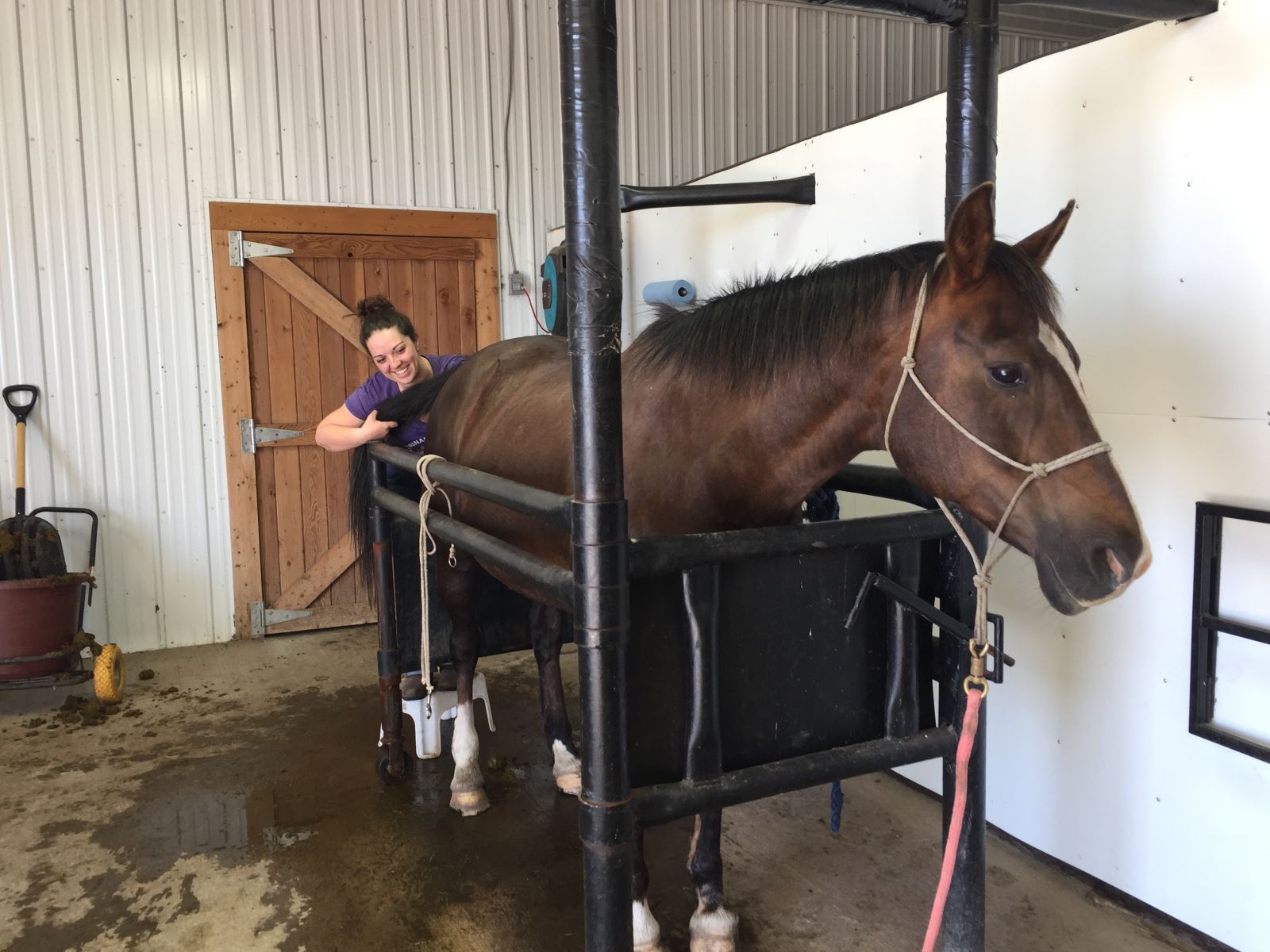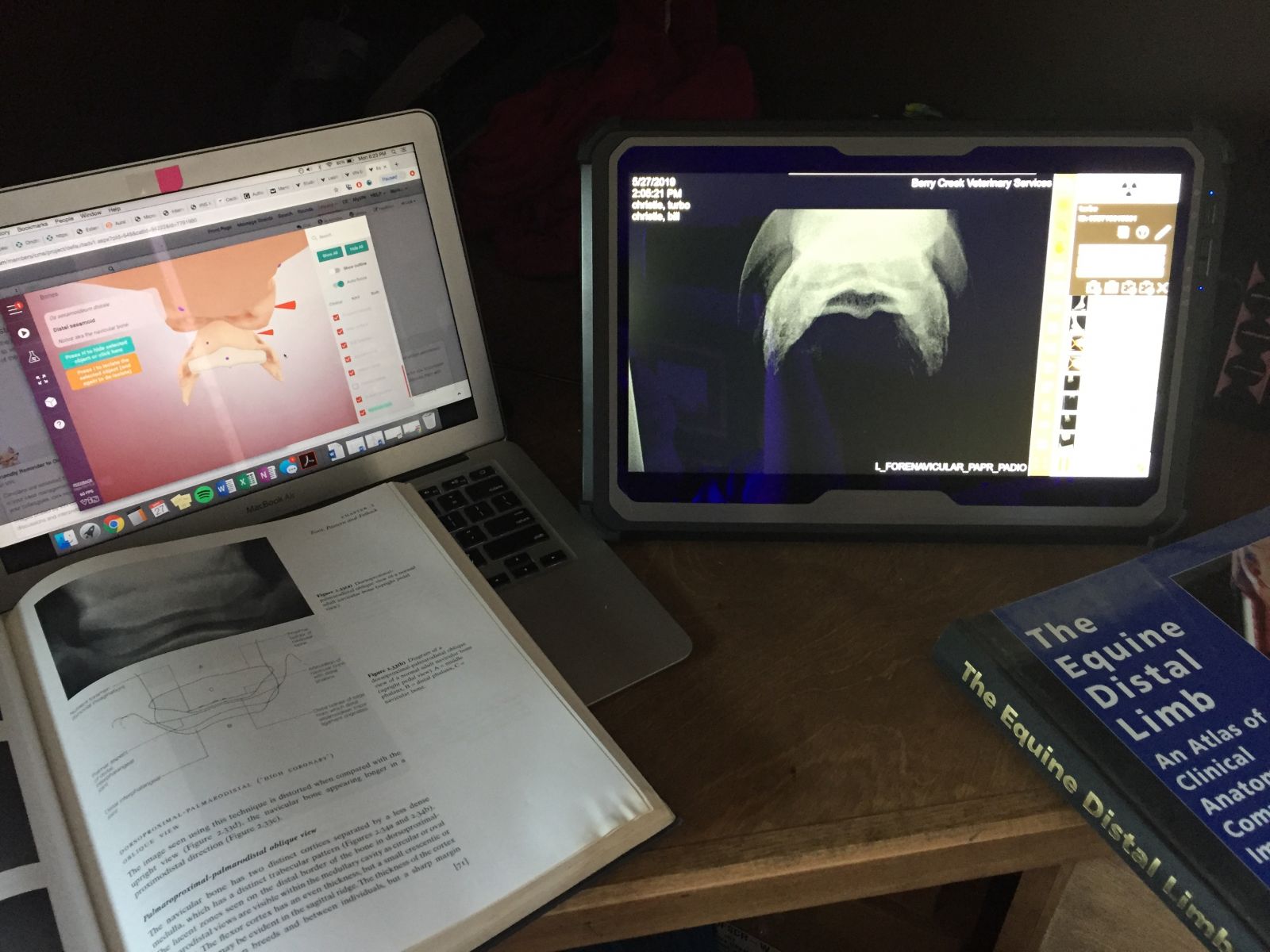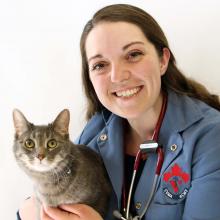The veterinary externship is a pivotal moment in the OVC experience. In Phase 1, it’s a distant concept and seems like an imaginary future in the whirl of first year anatomy. By final exams in Phase 3, it really is a light at the end of a long tunnel. This externship marks the moment when vet students truly start to become and act as their own doctors (under supervision), which presents exciting experiences and unique challenges. The eight weeks fly by fast, making it important to make the best out of this experience and to take up every learning opportunity one can get their hands on. I was extremely pleased with my externship and am so happy that I got to share my stories with you all! Now, I’d like to share with future externship students my top tips to taking advantage of your experience.
1. Be present and take initiative
Although most clinics and veterinarians are happy to present learning opportunities to students, you should take full responsibility for your learning. If you just sit in the office and wait for a vet to come and get you, I 
2. Make a journal
This is a KEY to surviving your externship as you will have a tonne of information thrown your way while you try to navigate practice. From common drug doses to the steps of running a urinalysis, there are a lot of things that a you’re trying to remember at once. By always bringing around a small notebook, you can quickly jot down gold nuggets of information so that you can quickly refer to it in the future. It will also prove to be useful throughout your phase 4 rotations as you will continue to add to your own personal veterinary bible.
3. Assign yourself homework
Throughout my externship (and now into my rotations), I came across so many diseases and topics that I was either unfamiliar with or realised that I needed to do some serious reviewing. When you go home, read up on anything from the day that
4. Get involved in the community
Some of my greatest experiences and memories during my externship actually happened outside of clinic time! I was lucky to be living on a beef ranch with a very inclusive family who invited me to attend various community events. By going to rodeos, I was able to better understand the type of sport these horses do and why they may need veterinary support. I was also able to help out when all the neighbouring families gathered at each ranch and helped process the year’s crop of beef calves. As a team, we worked with the calves to administer vaccinations and anti-inflammatories, place ear tags, brand them for each ranch and castrate any of the bull calves. Experiences like these can help you gain a greater understanding for the clients and patients you are trying to help in practice.
5. Reflect and make a plan

6. Don’t be afraid to push yourself
It can be scary trying to act as the vet in many instances, and it’s easy to hold yourself back because you don’t feel ready. However, nobody really feels ready to take their first history from a client or to make their first surgical cut, and everyone needs to start sometime. Luckily, the externship is the perfect place to throw yourself into what seems like the deep end and try to swim, since there are watchful vets ready to save you when you struggle. The only way to taking those first steps is to simply try, and you will surprise yourself that you can do more than you thought you could!
I could go on and on, but I’ll stop with what I think were the most important things that I learned for myself. Everyone will have a different experience and it’s up to each individual to make the most of it. The externship was definitely a highlight of my student veterinarian journey and I am so grateful for every moment with my veterinarians, technicians, and support staff, as well as the many connections I gained across the community and the great friends that I made. Thank you all for joining me in my prairie-vet journey and I wish the best of luck to students in their externships next year!
